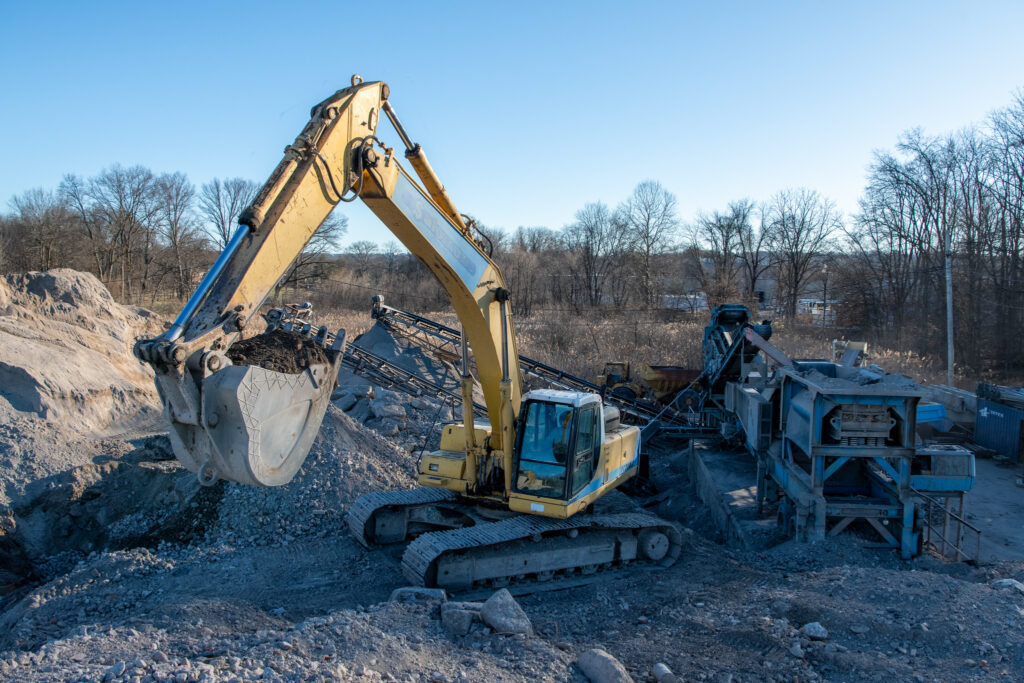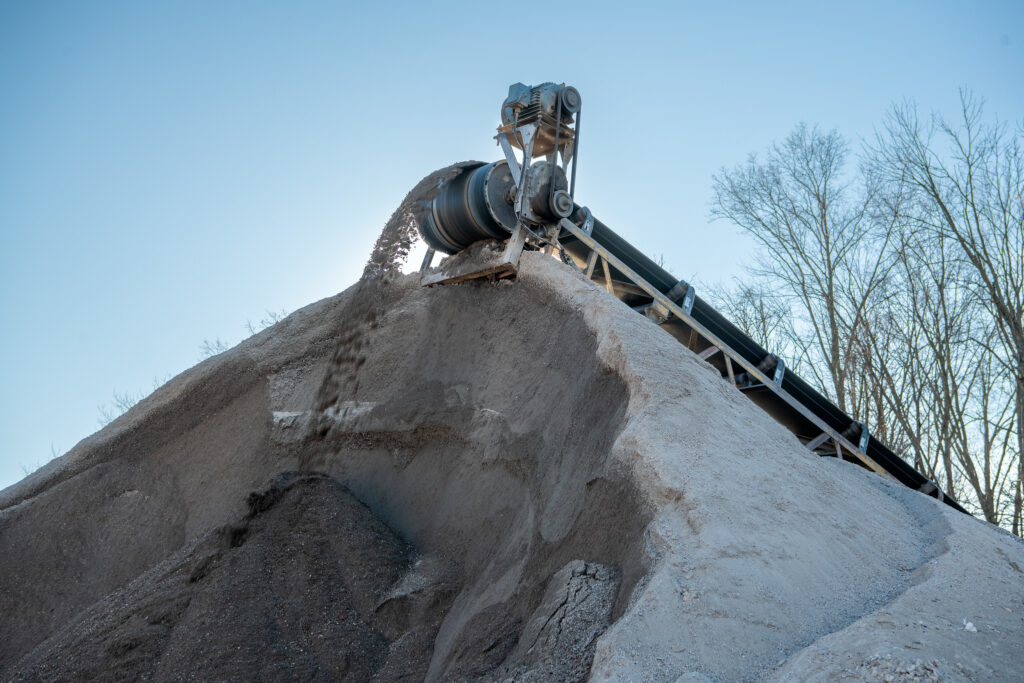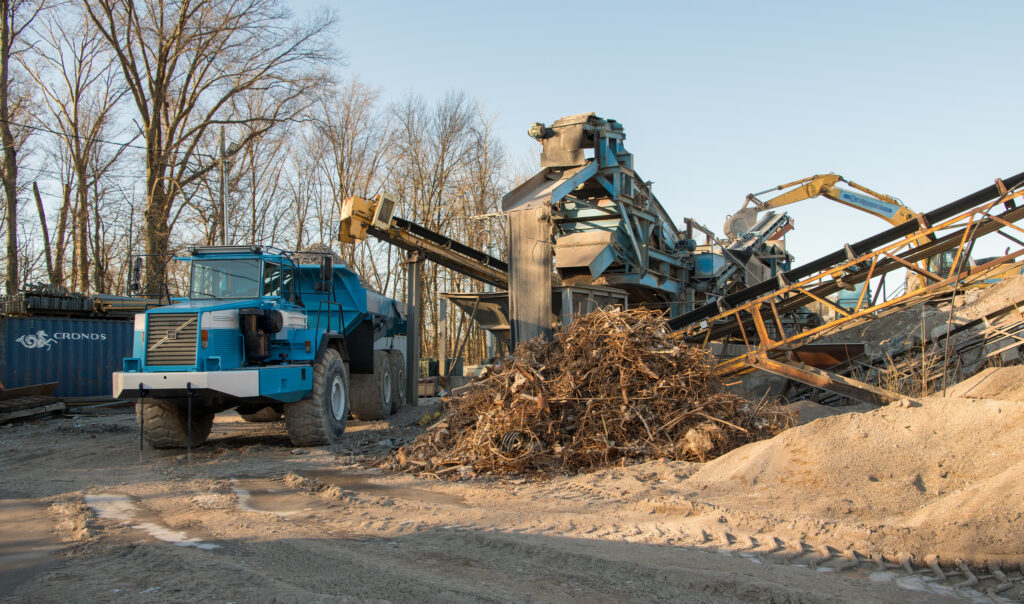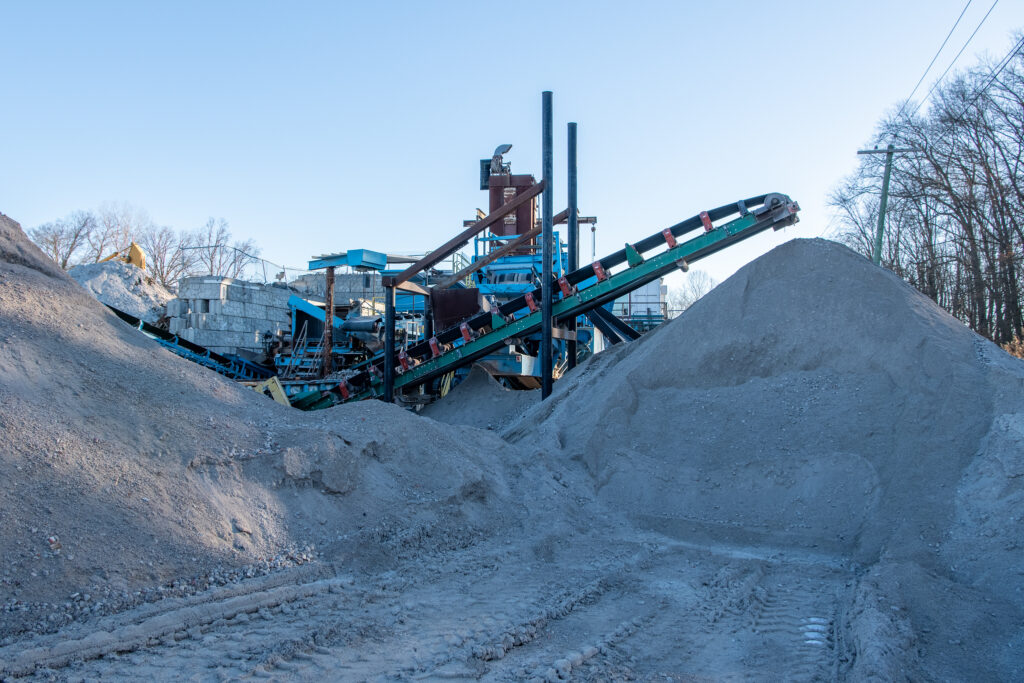CONCRETE RECYCLING
SBI Materials is approved to accept these Waste Types:
A = Asphalt
BB = Brick & Block
BR = Brush
C = Concrete
G = Grass
L = Leaves
TP = Tree Parts
TRS = Trees
TS = Tree Stumps
W = Wood
If you have any of the following waste types, please contact the appropriate recycling centers.
AM = Asphalt Millings
AS = Asphalt Shingles
CW = Creosote Wood
FW = Food Waste
GY = Gypsum
LW = Lake Weed
PCS = Petroleum Contaminated Soil
PWR = Potable Water Residue
SS = Street Sweepings
T = Tires
TL = Tree Limbs/Tree Branches
TT = Tree Trunks
W = Wood
WC = Wood Chips
WP = Wood Pallets
Why is Concrete Recycling so Important?
Concrete is one of the most widely used construction materials in the world, valued for its durability and strength. However, the production of concrete has a significant environmental impact due to the extraction of raw materials and the energy-intensive manufacturing process. As concerns about sustainability and environmental protection grow, recycling concrete has emerged as a crucial practice in the construction industry. Here are some key reasons why recycling concrete is important:
1. Conservation of Resources: Recycling concrete helps conserve natural resources such as gravel, water, and energy. By using recycled concrete as an aggregate in new concrete mixes, the demand for virgin materials is reduced, which helps to preserve these valuable resources for future generations.
2. Reduction of Landfill Waste: Concrete debris from demolition or construction projects often ends up in landfills, taking up valuable space and contributing to environmental pollution. Recycling concrete diverts this waste from landfills, helping to reduce the environmental impact of construction activities.
3. Energy Savings: The process of producing concrete from raw materials is energy-intensive, requiring significant amounts of fossil fuels. Recycling concrete reduces the need for new concrete production, resulting in lower energy consumption and greenhouse gas emissions.
4. Cost-Effectiveness: Using recycled concrete as an aggregate can be more cost-effective than using virgin materials, especially in areas where natural aggregates are scarce or expensive to transport. This can lead to cost savings for construction projects while promoting sustainability.
5. Improved Durability and Performance: Recycled concrete aggregates can offer comparable or even superior performance to virgin aggregates in terms of strength, durability, and other engineering properties. Properly processed recycled concrete can be used in a variety of construction applications, including road base, structural concrete, and drainage systems.
6. Environmental Benefits: Recycling concrete helps to reduce the environmental impact of construction activities by conserving natural resources, reducing landfill waste, and lowering greenhouse gas emissions. It is an important step towards creating a more sustainable construction industry.
Recycling concrete is an important practice that offers numerous environmental, economic, and performance benefits. By incorporating recycled concrete into construction projects, we can reduce our reliance on virgin materials, conserve resources, and contribute to a more sustainable future.








